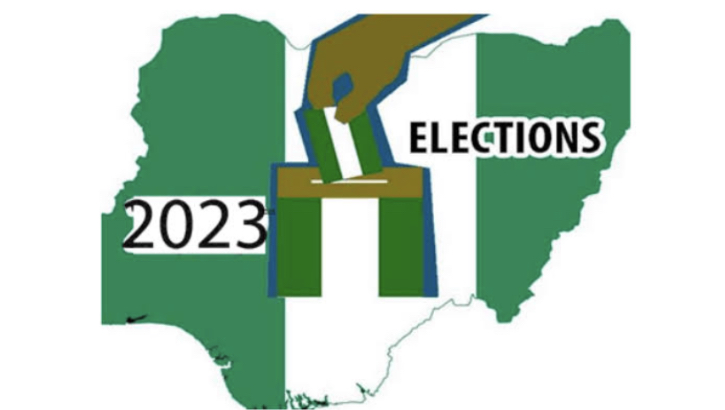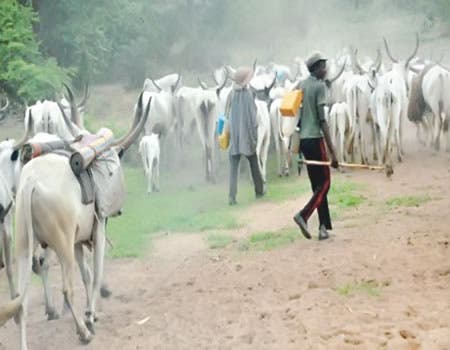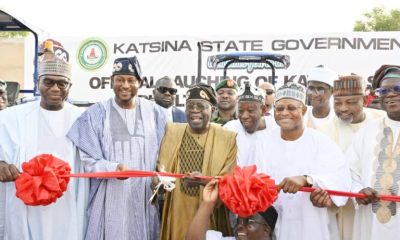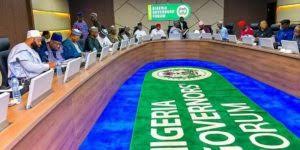OPINION
Governors: Right Versus Wrong People

By Dakuku Peterside
The gubernatorial and state Houses of Assembly elections have come and gone in most states. Unfortunately in some states, it was characterised by drama, unnecessary tension, flawed processes, violence and broad daylight electoral robbery. The victors are celebrating, and the losers must be feeling bad.
The few coming weeks will see election petitions on account of obviously flawed processes. And the judiciary will play its role in deciding the fate of most governors. As sad as this may be, this has become an unpalatable aspect of our democratic process. A critical reason for the massive interest in the governorship election is the vital role governors play in our democracy and our federalism. The state level remains the closest to the people and governors are crucial development actors who are often forgotten in discussing development in Nigeria because undue focus is on the Federal Government, and most people attribute progress or the lack of it to the Federal Government.
The combined total budget of the 36 states of Nigeria for 2023 is over N11 trillion, which is more than 50% of the Federal Government’s 2023 budget of N21.83 trillion. This vast fund accruing to the states, if properly harnessed and managed, could shepherd the development of Nigeria.
Just as in all federal systems, attention must divert from the centre and focus more on the constituent parts of the federation. It is at this local level that development is planned and executed. The Federal Government should play more of the role of a central facilitator and only get involved in the country’s strategic security, economic and social interests. It is appalling and an anathema that the Federal Government controls more funds than all the states combined, which has led to the states going cap in hands monthly to the Federal Government for monthly allocation. In most federal systems, the case is the opposite – the states fund the Federal Government through a specified allocation formula. It is also disheartening that some state governments cannot survive without total reliance on Federal Government projects and allocations. This is at the root of Nigeria’s lack of progress – having states that are liabilities to the nation, because they are unproductive and not viable.
It is utterly absurd that instead of elected governors to focus on making their states economically viable and developing their states from down to up, many governors have turned the states into fiefdoms and domains where they rule as absolute dictators, controlling not just the resources of the state, but all the state institutions with impunity. We see governors who unashamedly use public funds as their private funds and use it anyhow they want, with little or no accountability whatsoever. The job of a governor requires that s/he is less wasteful, less grandiose in lifestyle and cost of governance.
Nigerian state governors, by virtue of our constitution, have enormous powers and resource bases that, if properly deployed, can create oases of development. Some of the revenues accruing to certain states in Nigeria compare to those of some smaller African countries. To illustrate this, Lagos State’s 2023 budget of about $4 billion is higher than the 2023 budget of the Republic of Togo ($3.2 billion), almost equivalent to the Republic of Benin’s 2023 budget ($4.5 billion), and nearly half of Ghana’s 2023 budget of $11.7 billion. Other states have a similar revenue trajectory. How states manage their resources directly correlates with the their development levels.
A cursory look at past governors and their performances will highlight the good, the bad, and ugly shades. I am incredibly grateful to some governors who, in the past four or eight years, were able to articulate their visions clearly, set their priorities right, and who ran disciplined and inclusive administrations. There are only a handful of them. A few have grown the economies of their states, raised the Internally Generated Revenue (IGR) profiles, and made considerable strides in the infrastructural, social, economic, and technological development of their states. That way, they succeeded in improving the standards of living of residents of the states. My basis for measuring the governor’s performances is devoid of propaganda and sheer theatrics that most governors exhibit to confuse their citizens about their performance. Building a few roads, flyovers, and community centres does not qualify as development, especially given the enormous resources accrued to the state.
Proper assessments can be based on the Human Development Index (HDI). This measures each state’s social and economic development by focusing on the following three factors: critical education parameters; relevant health metrics; and the standard of living assessed by gross national income (GNI) per capita. The average HDI for Nigeria in 2021 was 0.535 (the possible highest is 1), and this is lower than for countries like Angola (0.58) and Egypt (0.73). Lagos and Ogun States ranked the highest, with 0.68 and 0.67 respectively. The governors of these states are doing their best to maintain this quality of living among their citizens.
There are examples of bad governors who squandered the resources of their states. They spend a lot of resources of the states on politics and political survival to the detriment of the payment of salaries, pensions and investment in capital projects. Where there are capital projects, they tend to be for display and vanity. Some of these governors are under investigation, and others will soon to be investigated when they leave office. In the past eight years, a South-South state had a cumulative revenue of over N4 trillion but has little or nothing to show for it. The quality of life of the people of the state is declining, and unless there is some drastic measures, all the advantages the state had in the HDI during the previous administrations will erode. Many governors were not able to translate their mandates to any tangible results and this manifests in low HDIs that are below the national average. Most of these states unfortunately are in the Northern part of the country. We appreciate the current level of insecurity in these areas and applaud any governor who did his best with the resources he has to improve the lives of his people and heavily criticise those who squandered their commonwealth.
We have elected a new set of governors and re-elected a handful to serve another term. I believe the old governors would have learnt from their experiences and the new governors will be ready to learn from the mis-steps of their predecessors. This is the time to set agenda for them and hold them accountable. This is the time to remind them to think beyond the exigencies of the moment and think “legacy”. Emeka Anyaoku, in 2011, advised newly elected governors to be “harbingers of change” by investing in their peoples and pursuing socioeconomic policies to create employment for the youth, restore quality education, diversify the productive base of their economies and work for improved healthcare. The advise is still relevant till date. All governors should strive towards sustainable revenue inflow tied to economic productivity. As the CEO of the states, governors should map out ways of relying less on federal allocations by improving IGRs through sustainable resource mobilisation.
Growth is possible through productive activities. Sound economic policies and good leadership will stir the states away from the financial crisis that often cripples some states, makes them borrow funds for recurrent expenditure, and neglect critical human development activities that will improve the people’s lives. New state governors must realise that they cannot focus on one development aspect and completely neglect the others, which is counterintuitive and anti-productive. The governors must cover, simultaneously and concurrently, critical areas of development such as quality education, quality healthcare for all, good security, and job creation. We have passed the era of providing basic infrastructure (roads, flyovers, beautification of city centres) as the only indices of development. Development must be holistic and improve people’s living standards, and anything short of this is unacceptable.
I congratulate all the elected governors, irrespective of whether their elections were flawed or not, and implore them to be courageous and determined to make an impact. The task ahead of developing Nigeria is enormous and calls for selfless leadership and sacrifice. I hope for healthy competition among the governors to outperform each other. They should learn from each other to do the right thing and shun all forms of greed and reckless impunity that have marred some other governors. I advise them not to become little emperors and sabotage state institutions for their selfish interests. Each governor must set up a team of experts to determine the best strategy to harness the state’s tremendous economic, social, and political potentials. There are no excuses this time for failure. Developing Nigeria is a task we must accomplish, and state governors are critical stakeholders and catalysts in shaping a new Nigeria. We have a young population that we must engage for greater productivity. The consequences of allowing our youth to wallow unproductively are dire to consider. The governors must allow for checks and balances and make for a healthy function of the legislature and judiciary in their states. They must create enabling environments for growth and development and support the private sector to grow. The problem between the government and the private sector now is caused by the excessive taxation imposed on the private sector. I sincerely hope that the new set of governors will change the Nigerian narrative only if they are ready to face the task of making Nigeria great.
OPINION
Akpabio-Akpoti Senate Judgment and the Contrived Ambiguity

By Simbo Olorunfemi
Much has been made of Justice Binta Nyako’s judgement in the case of Senator Natasha Akpoti-Uduaghan v The Clerk of the National Assembly of the Federal Republic of Nigeria and others. Many have argued that it is the ambiguity, non-definitive, and non-declaratory nature of the ‘judgment’ that has led to the confusion that has since then ensued, culminating in the embarrassing public spectacle we witnessed a few days ago.
Having now taken time to review the full judgment, not just the extracts that first came out, I have come to a different conclusion on the matter. Rather, I am of the opinion that what we are dealing with is a case of contrived ambiguity and manufactured confusion. A dispassionate reading can only lead one willing to learn to clarity. There is nothing ambiguous or confusing in that judgment.All that is needed is to situate the judgment in the proper context of the circumstances that led to the cause of action, pay attention to the reliefs sought by the plaintiff, bearing in mind that the Court is no Father Christmas, before reading the decisions of the court. That done, it becomes obvious that, but for a deliberate attempt at mischief, there is nothing that should have triggered the confusion that we have witnessed in the matter.Dial back to the very beginning. The senator had raised hell on the floor of the Senate about the reassignment of seats, insisting on speaking from a seat not assigned to her, while holding on to Order 10 of the Senate rules. Every effort, within and outside the chambers, to make her understand that while Order 10 offers her the privilege to speak at ‘anytime’, that privilege is itself contingent upon speaking from her assigned seat, in accordance with the rules.She not only refused to abide by the rules on the day, but she also followed up with a radio interview. A motion was subsequently moved by another senator, stating that his privilege had been breached, leading to the matter being referred to the Committee on Ethics and Privileges, which then invited her to appear before it. Rather than do so, she opted to approach the Court.She sought the court to protect her right to a fair hearing and privileges under Orders 9, 10, and 11, arguing that a combined reading of these orders ought to have served as cover for her actions on the floor of the Senate and protected her from being referred to the Ethics and Privileges Committee.In other words, her suit was virtually a carryover of her argument on the floor of the Senate, and subsequently in public fora, that by virtue of Order 10, she had a right to speak from wherever she chose. It is on the basis of, and around this, that she filed an action seeking six reliefs.It is instructive that the Court didn’t find merit in any of the reliefs she sought, thereby comprehensively ruling in favour of the Senate, asserting its rights to set its rules, discipline its members, and pointing out that the Senate President is vested with the right to assign and reassign seats. It also affirmed that members can only speak from assigned seats, and that it is within the rights and purview of the Senate to refer the senator to the Ethics and Privileges Committee.In the words of the court (CAPS mine for emphasis): “In the circumstances of this case, as rightly contended by the Defendants, an invitation to appear before an Ethics Committee of the Senate is a CLEAR MANIFESTATION OF PROCEDURAL FAIRNESS, NOT A BREACH OF IT. From a careful reading of the Originating Summons, there exists no allegation whatsoever to the effect that the Defendants contravened…statutory or constitutional provisions as the crux of this action is hinged solely on protection of parliamentary privilege on the floor of Senate. It cannot be the intendment of Section 36(1) of the 1999 Constitution that this Court has powers to entertain complaint against any and every discussions/written communication arising from plenary sessions of the 2nd defendant. If it were the case, then this Honourable Court would know no rest.”It is safe to say that the Court resolved all the issues raised in favour of the Senate (even partly affirming the argument raised by the parliament in its preliminary objection on the lack of jurisdiction). Even on the matter of contempt filed by the Senate President on 5th May, seeking five reliefs, the Court, in protest of the 27th April satirical apology of the senator, found her guilty of contempt, fined and ordered her to issue a public apology.There is therefore no confusion, from the judgment as seen, that all the direct reliefs sought by the senator were denied and orders to that effect expressly made.Justice Binta Nyako might have simply wrapped it up, but it is my opinion that, having reviewed the rules of the Senate and out of consideration for the constituents in Kogi State, she then ventured further to offer an opinion on the extensive powers of the Senate, which allows it to suspend a member ad infinitum. Bear in mind that there was no relief directly sought in this regard. The Court only decided to widen the scope of consideration, and in that light, the Justice argued that “to make a LAW THAT HAS NO END IS EXCESSIVE and cannot be the intendment of the law,” thus imploring the Senate to EXERCISE ITS POWER to review the rules and recall the senator.These are the words of Justice Binta Nyako in that regard. (CAPS mine for emphasis): “On the issue of denial of the Plaintiff to the representation of her Senatorial District without inspiring the function of the NASS, I will give and say due to the gravity of the issue, I have read in its entirety, the Senate Rules under which the Plaintiff was suspended, thus denying the representation of her Senatorial District.“I believe that the constitution, Legislative House (Powers & Privileges) Act, nor the Senate Rules will not intend for that to happen. I have read with interest, Chapter ix (8) of the Senate Rules and Section 14(2) of the Legislative House (Powers & privileges) Act ix (8) allows the Senate to suspend a senator until a time determined by the Senate ad infinitum while S.14(2) allows for suspension of a member (Senator) in similar terms, even without pay.“I do not think the constitution envisages this.“A Senator is expected to represent his people in either Legislative house for a specific number of days per session. If any suspension is UNWARRANTED, then I OPINE that the Act and the Senate Rules should also be specific and not live it at large. A suspension cannot exceed the requisite number of days the member should sit. The constitution says a legislative year is 181 days and the house should sit for this number of days. This makes it at least 36.2 weeks in a year, which is a session. To suspend a member for 6 months means suspension for 180 days and this is half the number of days the member is expected to sit in the House representing his people.“I do not think this is the intention of the framer of the law. To make a LAW THAT HAS NO END IS EXCESSIVE and cannot be the intendment of the law. I AM OF THE OPINION that the Senate has the POWER TO REVIEW this provision of the Senate Rules and even amend Section 14(2) of the Legislative Houses (Powers & Privileges) Act, both for being over-reaching. The Senate has the power to and I believe should recall the plaintiff and allow her to same time, represent the people who sent her there to represent them.”I believe that what the Court did was to, out of compassion, offer a lifeline to the senator, in realisation that this was a difficult situation. The court has clearly established the powers of the Senate and that it has not contravened its rules and the law in this instance. I believe that offering that opinion was the Court’s way of asking the Senate to temper justice with mercy.I believe that if that judgment had been accepted with a bit of contrition and humility, and there had not been the rush to foist a different interpretation on it, as is obvious to some of us who have read it, thereby reading into the decision of the court what was not there, we might not be where we are today. I believe a more diplomatic approach might have served as a lifeline for a rapprochement between the senator and the Senate.An apology to the Court, as ordered, and an apology to the Senate, as had been requested by the Senate, could have followed suit, and that would have offered an opportunity for a dignified closure to this phase of an embarrassingly mismanaged fight.I do not see how enlisting the services of social media influencers and full-time activists can help turn a recommendation into an order. There is a time for everything. No matter how far one might have gone in a particular direction, there is always an opportunity to retreat, rethink, and re-strategise.Simbo Olorunfemi works for Hoofbeatdotcom, a Nigerian communications consultancy and publisher of Africa Enterprise. Email: Editor@enterpriseafrica.ngOPINION
The Impact of Incessant Attacks in Farming Communities

By Efe Omoghene
Rural communities across Nigeria’s Middle Belt and the North, which were once the major cities’ food pipeline, are now struggling to feed themselves. Thriving farmlands now bear the weight of fear and insecurity. With each disrupted planting season, the country edges closer to a more profound food security crisis, exacerbating what began as a regional instability into a nationwide emergency.
Incessant attacks have led to deaths and the displacement of farming communities in states that contribute significantly to Nigeria’s agricultural output. In June alone, attacks in Benue State, the “Food Basket of the Nation”, claimed dozens of lives and uprooted entire communities. While these incidents are heartbreaking, they are not new; we are only witnessing frequent recurrence. This troubling pattern of insecurity continues to force farmers off their land, disrupt food production, and weaken the nation’s ability to feed itself.Statistics from the Internal Displacement Monitoring Centre show that an estimated 295,000 internal displacements related to conflicts and violence were reported in Nigeria in 2024 alone. This includes the states of Benue, Borno, Katsina, Sokoto, Yobe and Zamfara. This is not just a crisis of safety; it’s a crisis of sustenance.For years, states such as Benue, Kaduna, Niger, Plateau, and Zamfara have been key food-producing regions, responsible for much of Nigeria’s grains, roots, fruits, and livestock. However, these areas are increasingly becoming places where violence has made farming a risky endeavour. Clashes between herders and farmers, banditry, terrorism, and communal violence have transformed fertile lands into contested zones. When farmers fear for their safety, they often cease farming or abandon their land altogether.The impact is already being felt. Markets are seeing rising prices on staple foods like yams, rice, and tomatoes. According to the National Bureau of Statistics, the cost of beans in the country in October 2024 was 282 per cent higher compared to the same period in 2023.The Food and Agriculture Organisation’s trend analysis for the north-eastern states indicates persistently high or increasing levels of food insecurity since 2018. The number of people needing urgent aid has increased by at least four million annually during the lean seasons since June 2020. Additionally, the north-west and parts of the north-central regions now exhibit critical levels of severe food insecurity and malnutrition, identifying them as major hunger hotspots requiring urgent attention from policymakers.A study revealed that 52.44 per cent of respondents in Niger State experienced food insecurity due to various insecurity activities such as blocking local routes, killings, kidnapping, and disruption of market functions. Insurgencies in the North Central states have also contributed to rising poverty levels among livestock farming households, with 83.84 per cent of livestock farmers participating in a study reporting significant declines in livestock production due to insurgency.If this pattern continues unchecked, the consequences could be long-term. More families will face hunger, and young people will leave rural areas for safety and work, draining the agricultural workforce in rural communities. Dependence on humanitarian aid will rise, and the burden on government resources will increase.This year, Nigeria is already projected to face a significant hunger gap, with up to 33 million people at risk of acute food insecurity in the lean season (between June and August), according to the FAO. This represents a seven million-person increase from the same period in 2023.Food security is not solely the government’s responsibility. It is a basic human right and our collective responsibility. Relying solely on farmers in distressed areas is not a very practical approach. Thankfully, the country is not in a hopeless situation.Across Nigeria, there are numerous examples of humanitarian and community-led peacebuilding efforts in action, and Sahel Consulting is proud to be part of this momentum. We are actively collaborating with local and international partners to develop practical solutions in the food value chain, empowering farmers and strengthening agribusinesses across Nigeria.Through our programs in dairy, seed, tuber, and policy systems, we are facilitating the increase in productivity, improving market access, and building capacity at the grassroots level. Whether it’s training dairy farmers in Adamawa, scaling clean seed yam innovations in Benue, advancing true potato seed systems in Plateau, or improving livestock nutrition through feed and fodder initiatives, our work is rooted in collaboration, innovation, and long-term impact.Similar efforts are taking shape through the work of the Gates Foundation. Gates Ag One, in partnership with the Institute for Agricultural Research at the Ahmadu Bello University, Kaduna State, is providing farmers with access to improved seed varieties for crops like beans and maize, engineered to resist pests and withstand drought. The foundation also funds projects to enhance livestock productivity and strengthen dairy value chains.State governments have also started implementing policies to support ranching to address farmer-herder conflicts and enhance agricultural productivity. Eleven states, including Anambra, Bauchi, Delta, Jigawa, Kano, Lagos, Niger, Nasarawa, Ondo, Plateau, and Zamfara, are either allocating land for ranches, developing policies, or committing to do so in the future. This initiative is part of a broader shift from open grazing to more modern, sustainable ranching practices. Farmer-herder dialogues, early warning systems, and conflict mediation groups have all demonstrated promise.Private organisations are also collaborating with ministries, agencies, and local partners to support resilient food systems through training, innovation, and market access.This is by no means the end of the story. While these efforts are commendable, their impact is not particularly noticeable vis-à-vis the insecurity, as they are implemented in isolation and on a relatively small scale. The real challenge, and opportunity, lies in collaboratively scaling initiatives that are working. For lasting change, we need to invest more in proven interventions. Government policies must be supported by robust implementation strategies, and private and development actors must be empowered to apply these models in more communities across the country.It is not enough to initiate these projects; we must establish frameworks that ensure they are sustainable, community-led, and responsive to the realities of the local communities. Clear safeguards and inclusive principles must be in place, especially in areas where displacement and land rights are already sensitive issues. Any solution must consider the voices of host communities and guarantee mutual benefit.Let’s focus on what’s already showing promise, such as improved seed distribution, inclusive value chain optimisations, and community-based peacebuilding. But let’s also be honest: we need to do much more, and we must do it together.The key is to make human security a foundation, not an afterthought, for agricultural development. Farmers need more than seeds and tools. They need to know that if they invest in their land, neither their lives nor their farms will be lost to violence; if they plant, they will live to harvest.Food security starts with human security. When fields are safe, they flourish. And when rural communities thrive, the whole country benefits—from Lagos to Maiduguri, Port Harcourt to Makurdi.Efe Omoghene is the strategic communications officer with Sahel ConsultingOPINION
The Task Before North Central Development Commission
By Bridget Tikyaa
The creation of the North Central Development Commission by President Bola Ahmed Tinubu has rekindled hope and set the tone for a new lease of development in the entire states of Benue, Nasarawa, Kwara, Kogi, Niger and Plateau, as well as the Federal Capital Territory (FCT).
These are states that have suffered long years of economic hardship, insecurity, displacement, disruption of basic services including schools and health infrastructure, and much more. With the inauguration of the board of the commission, whose headquarters is in Lafia, Nasarawa State, all is now set for the commission to articulate its programmes and swing into action. Already, the Federal Government has made provisions in the 2025 budget for the funds with which the commission will execute its programmes and projects.One of the key tasks the commission must plan for and address is the endemic rural poverty and economic hardship in the North central region. Over 75% of rural Nigerians live below the poverty line, with widespread economic stagnation, inflation, and insecurity contributing to severe economic hardship. The region’s dependence on oil and limited diversification have exacerbated poverty, with 30.9% of Nigerians living below the international extreme poverty line of $2.15 per day. This, no doubt, deserves frontal, timely and decisive action to contain.Another troubling aspect in the region is the level of insecurity and conflict being witnessed from Benue to Niger, Kwara and Kogi, Nasarawa and Plateau. The region is plagued by conflicts between farmers and herders, banditry, local militias particularly in Benue and Plateau states, resulting in loss of lives, displacement of communities, and decline in agricultural productivity. Insecurity has also limited access to cropland and restricted access to agricultural inputs. It is therefore imperative for the commission to interact with key stakeholders and devise a regional approach to the security challenges, including the establishment of a regional security, including support to existing security agencies to ensure a decisive and prompt response to the challenges. The safer the region, the more it takes the right steps to address other challenges.The North Central Development Commission should also have a blueprint to respond to the climate change and environmental issues in the region, from rising temperatures, erratic rainfall, flooding, and drought, to erosion and deforestation. Presently, these challenges have intensified existing vulnerabilities, disrupting education, health services, and community protection mechanisms. Climate change has also contributed to resource-based conflicts over land, water, and minerals as in Benue, Niger and Plateau states.One fundamental issue the commission must develop a Marshal plan for is the scourge of displacement and humanitarian crisis due to conflicts that had made over 300,000 homeless in just four states, including Benue and Nasarawa. This has resulted in increased vulnerability to gender-based violence, exploitation, and abuse, particularly among women and girls. This vulnerable population needs protection, security, emotional and economic support, and mental health evaluation, among others. The commission, therefore, has a huge task ahead of it, working in sync with the government of the six states, development partners and other stakeholders, to justify its creation by making a huge presence in the lives of the people of the region.The six states in the North Central also face limited access to basic services, including healthcare, education, and protection mechanisms. There are a number of areas where health facilities and schools have been destroyed or disrupted, thereby exacerbating the existing vulnerabilities. There are also the governance and leadership challenges due to weak governance structures, corruption, and poor management of the region’s natural resources. Over the years, the lack of effective leadership and accountability has hindered efforts to address poverty, insecurity, and climate change in the region and other parts of the country.These interconnected challenges, no doubt, require a comprehensive and multi-faceted approach to address, and the North Central Development Commission can greatly contribute to the solutions by vigorously promoting the region’s development, sustainable growth and stability.By Bridget Tikyaa is a Media Expert and writes form Makurdi



























